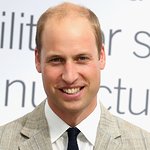In a brief but passionate interview with HRH Prince William, The Duke of Cambridge, celebrated nature documentarian Sir David Attenborough made an impassioned plea to participants of the World Economic Forum to care for the natural world.
Attenborough urged participants to preserve the childlike wonder with which they first encountered the natural world.
“I don’t believe a child has yet been born who doesn’t look at the world around it with those fresh eyes and wonder,” he said. “If you lose that first wonder, you’ve lost one of the great sources of delight, and pleasure, and beauty in the whole of the universe,” he said. “Caring for that brings joy and enlightenment that is irreplaceable.”
Nature filmmaking, he noted, has benefited immensely from the advance of technology. “The facilities we now have are unbelievable. We can go everywhere. We can to the bottom of the sea, we can go into space. We can use drones, we can use helicopters … we can speed things up, we can slow things down, and film in the darkness. The natural world has never been exposed to this degree before,” he said.
But with these technological advances came a growing awareness of the dangerous power in the hands of humanity. “When I started 60 years ago, in the mid-50s, to be truthful there was no one who thought we might annihilate the world. The notion that human beings might exterminate whole species … seemed the exception. Now we are well aware that … we can do things to accidentally to destroy whole parts of the natural world and exterminate whole species,” Attenborough warned.
Even as the ready accessibility of nature programmes and the ability of filmmakers to reach the remotest corners of the world have made it easier for people to learn about nature, humanity’s connectedness with the natural world is more tenuous than ever. “Now there are more people living in towns, in conurbations, than living in the wild,” said Attenborough. “The majority of people are out of touch to some degree with the richness of the natural world.”
The threat posed by anthropogenic climate change is “difficult to overstate,” he said. “We are now so numerous, so powerful, so all-pervasive, and the mechanisms we have for destruction are so frightening that we have really to be aware of the dangers,” he warned. Humanity has done “appalling damage upon marine life, the extent of which we don’t fully know,” said Attenborough.
“I think the paradox is that there’s never been a time when more people are out of touch with the natural world, and yet we have to recognize that every breath of air and every mouthful of food comes from the natural world – and if we damage the natural world, we damage ourselves. It’s not just beauty and wonder: it is essential to human life. We are in the danger of wrecking that. We are destroying the natural world, and with it, ourselves,” he said.
But his outlook is not pessimistic. “We are discovering more ways in which we can get in front of [the pending disaster]. The fact we are now beginning to get power directly from the sun, with no need to pollute the world with by-products of our devices, is becoming reality all over the world,” he said. “We have the power, we have the knowledge, to live in harmony with nature.”
Attenborough then previewed powerful scenes from his latest film, which will debut at the World Economic Forum. The scenes of an Arctic glacier calving, with skyscraper-sized blocks of translucent blue ice crashing spectacularly into turbulent seas, were shot, as Attenborough explained, by skilled teams on helicopters maintaining steady positions despite powerful and unpredictable updrafts. “Within 20 minutes,” Attenborough narrates," 75 million tonnes of ice break free."
The World Economic Forum Annual Meeting brings together more than 3,000 global leaders from politics, government, civil society, academia, the arts and culture as well as the media. Convening under the theme, Globalization 4.0: Shaping a Global Architecture in the Age of the Fourth Industrial Revolution, participants are focusing on new models for building sustainable and inclusive societies in a plurilateral world.






